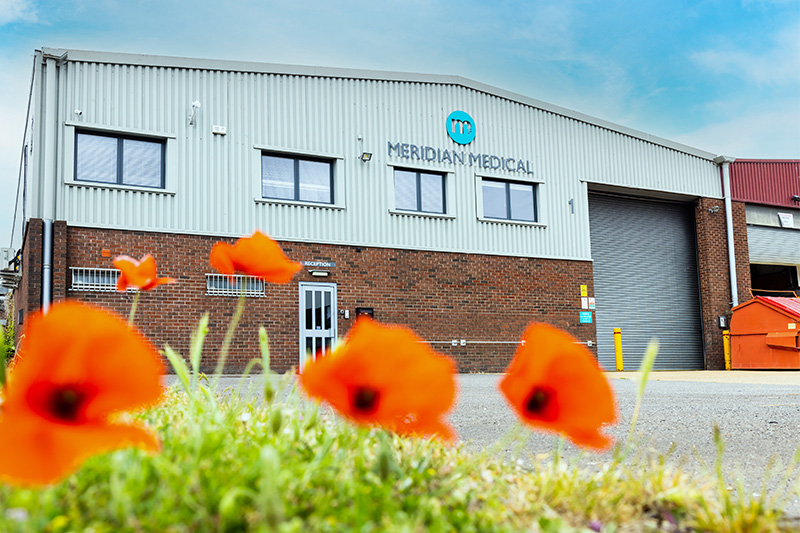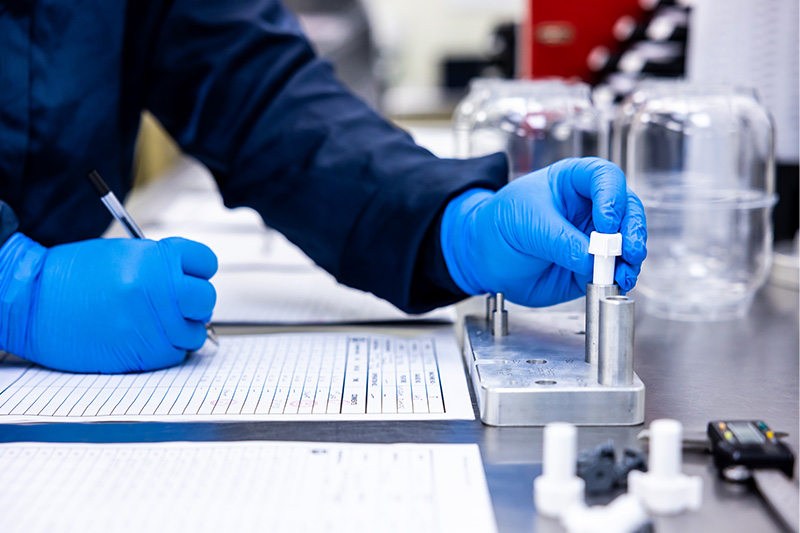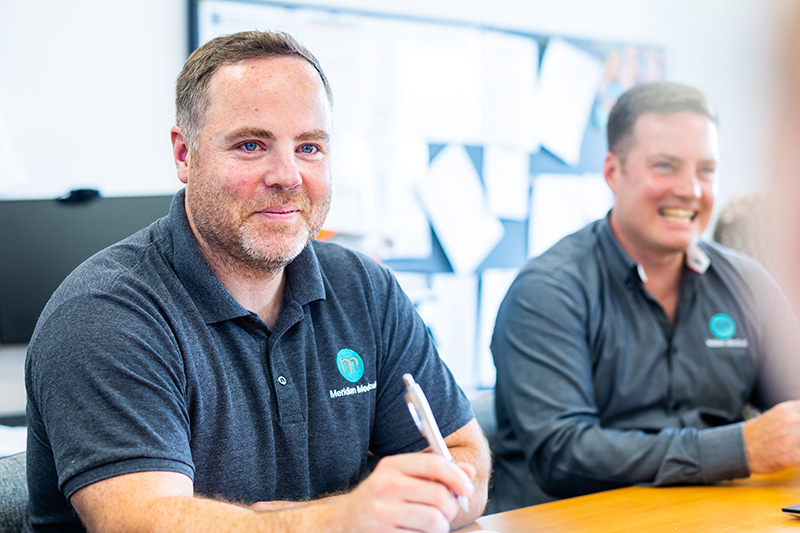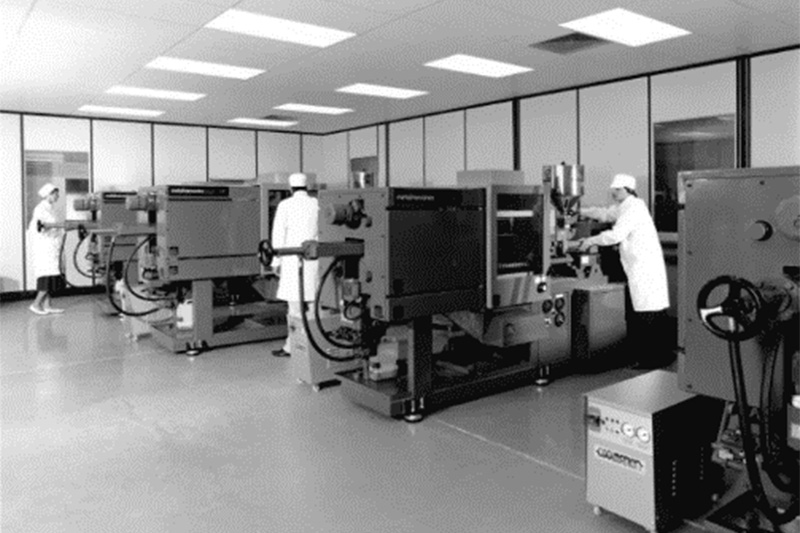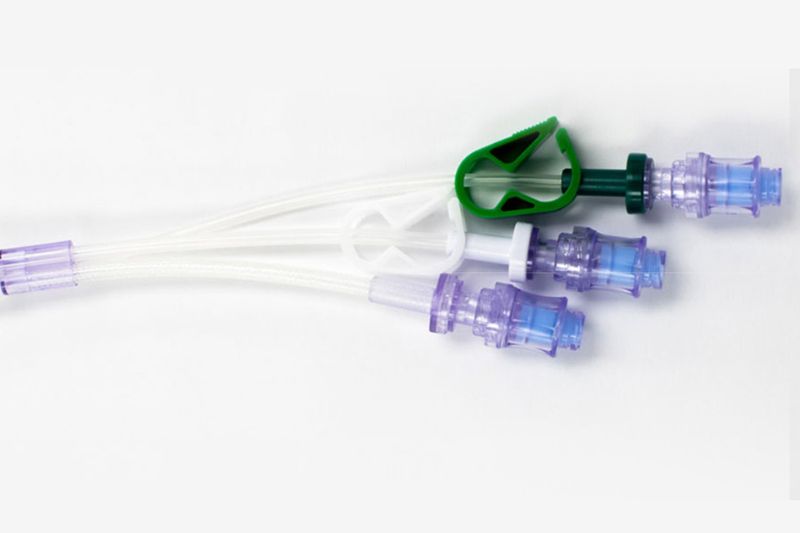Frequently asked questions about contract medical device manufacturing
Successful selection of a contract medical device manufacturer is only achieved through a great deal of consideration. From the quality of their facilities and equipment, through to the range of services they offer and their approach to working with you, it’s important to get your decision right.
Below you will find the answers to some of the questions that our customers regularly ask us.
If you can’t find the answers you need, please do get in touch with a member of our team for more details.
Medical device manufacture
Where can I get expert advice and guidance on getting a medical device manufactured?
As an established and experienced contract medical equipment manufacturer, the team at Meridian Medical is always happy to discuss the production of any kind of medical device and offers a comprehensive range of services to meet any or all of your needs.
We specialise in a wide range of sterile and non sterile medical device development and supply. To find out more, get in touch today.
Can you export medical devices to other countries?
Yes, we can export your medical device to any country using our approved logistics suppliers. Our sales price excludes delivery and any taxes applied, so this will need to be calculated when placing the order.
If Meridian Medical is assembling the device, does that mean they are the manufacturer?
No, the manufacturer is always the company with legal responsibility for the product (the company holding the CE certificate). Meridian would be your supplier.
Can you provide the product under the Meridian CE mark?
Medical products will need to be manufactured using your own CE mark. We can introduce you to our preferred regulatory experts if you require additional expertise.
Medical device cleanroom assembly
What cleanroom assembly facilities does Meridian Medical have?
Meridian Medical has manufacturing and assembly facilities that are dedicated to the manufacture of medical equipment, including 852m² of six purpose-built cleanrooms certified to ISO class 7, and an additional 300m² cleanroom certified to ISO Class 8. For more details, see our Facilities list.
Do your cleanrooms meet the required standards for medical device production?
All cleanroom production areas are regularly validated to ensure they meet customers’ strict standards and are routinely and rigorously inspected by the microbiological team to ensure they meet the required levels of product cleanliness.
What are your cleanrooms used for?
Each of the purpose-built Class 7 assembly cleanrooms has different capabilities. For example, one cleanroom houses a 10kw digitally programmable double-shuttle RF welder, while another features UV curing and bonding equipment and ultrasonic welding machines.
A third cleanroom houses programmable drilling machinery, pad printing and tube forming equipment to produce catheters and fluid lines.
The fourth cleanroom houses custom-built robotic dipping and rotary inspection equipment.
Do parts that subcontractors supply need to be made in a cleanroom?
Ideally, yes, but depending on what the part is and its origin, having it cleaned can be acceptable, too.
Should I use EtO or Gamma for sterile medical devices?
This is always dependent on the medical device and its application. We would be happy to advise you on the best type of sterilisation for your product.
Medical device injection moulding
What injection moulding machinery do you have?
We have a range of machinery with different specialisations. These are 12 state-of-the-art injection moulding machines, ranging from 22 to 220 tonnes. These are housed within a class 8 cleanroom and operate 24 hours a day.
In addition, our Fanuc 220ia is fitted with a six-axis Fanuc M10 robot – perfect for all small handling jobs, with super-fast handling, pick, place and machine tending operations.
For more details, see our injection moulding plant list.
Is my medical component mouldable?
The vast majority of designs can be 3D printed or prototyped, however, mass production via injection moulding has its limitations. We can advise and assist you with any required design for manufacture.
Can you handle complex injection moulding?
We regularly support customers in more complex processes, such as high processing temperatures or significant drying requirements, by preparing for them at the beginning of the project using modelling software or prototype tooling. Unfortunately we do not have the equipment for twin shot or silicone injection moulding.
Do your cleanroom injection moulding services comply with the relevant standards and regulations?
We have the latest certification to ISO9001 and ISO13485, and FDA registration for customers who plan to export to US markets.
Are your injection moulding cleanroom facilities regularly inspected, tested and validated?
We internally audit our production facility using rigorous cleanroom facility inspection, testing and validation systems.
Do you have a minimum or maximum run amount for injection moulded parts?
We are happy to provide production costs for any run size.
Can Meridian Medical purchase our tooling and amortise the costs into the product piece price?
Typically this is not an option. We find the working relationship is much cleaner when the customer owns their own tooling.
Disposable medical device
What are disposable medical devices?
A disposable medical device is any medical product that is designed and intended to be used on one patient and then discarded after the completion of that treatment or a set period of time.
They can be:
- Individually packaged
- Single use
- Clinically clean / Non-sterile / Sterile
- Typically used by trained physicians
- Used in hospitals / GP surgeries and homes
- Made in traceable batches
- CE marked by a regulatory body
Full medical device project management
What stages of medical device development can you help me with?
We are an end-to-end contract manufacturing partner who can fulfil all your medical supplies needs, as well as all subcontractor management. Our full device project management services run from design for manufacturing through to medical product assembly, packaging, storage of medical equipment, components and raw materials and dispatch.
What if I don’t need full medical device project management?
We can become involved with your project at any stage and will work closely with you to advise the best ways of progressing your ideas, designs or existing product(s) through our manufacturing processes.
What are the benefits of having full medical device project management?
By working with a contract medical equipment producer that offers an end-to-end service, you will have access to a level of service that in-house facilities or a multi-supplier set-up cannot match. Get more details.
How can you assist with medical product development?
There are a number of ways that the right medical device contract manufacturer should be able to assist with product development, helping to ensure the highest levels of product quality, strict scheduling and optimum manufacturing process cost-efficiency. Discover what they are.
How long does it take to get a typical medical equipment project from concept to point of sale?
Depending on what stage your product is within the design cycle and what class of device it is, typical times to reach point of sale can be 1 year onwards.
Medical device manufacturing quality and regulatory compliance
How does Meridian Medical ensure quality standards are met?
Adherence to product safety standards and regulatory compliance is guaranteed throughout our operation and our sterilisation services include fully compliant validation for your manufactured medical supplies. A service to design and develop packaging and labelling for medical products that is fully compliant is also available.
What quality standards do you comply with?
All products are tested and inspected and all onsite test equipment is calibrated and traceable to national and international standards.Our quality system complies with all the latest European and FDA standards, including ISO 13485, ISO 9001 and ISO 14001. Find out more.
Do you have an ethical trading policy?
Meridian Medical is a living wage employer and is committed to the policy of ethical trading by identifying and promoting good practice in the implementation of codes of labour practice. We promote the observance of internationally recognised labour standards, in particular fundamental human rights both for our employees and throughout global supply chains.
What is the difference between medical device verification and validation?
Verification is checking each piece of medical equipment meets the specification, whereas validation is the process of proving the manufacturing process repeatedly produces the correct medical device.

